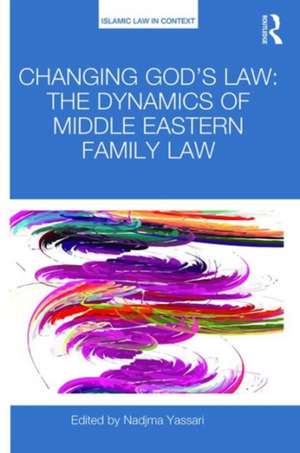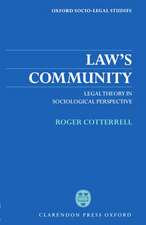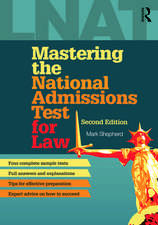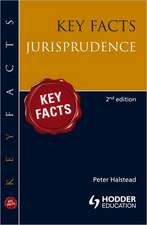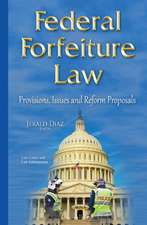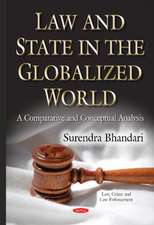Changing God's Law: The dynamics of Middle Eastern family law: Islamic Law in Context
Editat de Nadjma Yassarien Limba Engleză Hardback – 9 iun 2016
| Toate formatele și edițiile | Preț | Express |
|---|---|---|
| Paperback (1) | 416.05 lei 43-57 zile | |
| Taylor & Francis – 11 mai 2018 | 416.05 lei 43-57 zile | |
| Hardback (1) | 1058.65 lei 43-57 zile | |
| Taylor & Francis – 9 iun 2016 | 1058.65 lei 43-57 zile |
Preț: 1058.65 lei
Preț vechi: 1291.04 lei
-18% Nou
Puncte Express: 1588
Preț estimativ în valută:
202.58€ • 212.04$ • 168.60£
202.58€ • 212.04$ • 168.60£
Carte tipărită la comandă
Livrare economică 31 martie-14 aprilie
Preluare comenzi: 021 569.72.76
Specificații
ISBN-13: 9781472464958
ISBN-10: 1472464958
Pagini: 302
Dimensiuni: 156 x 234 x 23 mm
Greutate: 0.57 kg
Ediția:1
Editura: Taylor & Francis
Colecția Routledge
Seria Islamic Law in Context
Locul publicării:Oxford, United Kingdom
ISBN-10: 1472464958
Pagini: 302
Dimensiuni: 156 x 234 x 23 mm
Greutate: 0.57 kg
Ediția:1
Editura: Taylor & Francis
Colecția Routledge
Seria Islamic Law in Context
Locul publicării:Oxford, United Kingdom
Cuprins
Preface; Introduction: new family law codes in Middle Eastern countries: reforms that are faithful to Islamic tradition?, Marie-Claire Foblets. Part I Breaks and Continuities in Middle Eastern Law: Breaks and continuities in Middle Eastern law: women after the 2011 revolutions, Chibli Mallat; Contextualizing family-law reform and plural legalities in postcolonial Pakistan, Shaheen Sardar Ali; Family law, fundamental human rights and political transition in Tunisia, Monia Ben Jemia. Part II Legislation: Struggling for a modern family law: a Khaleeji perspective, Lena-Maria Möller; Between procedure and substance: a review of law-making in Egypt, Nora Alim and Nadjma Yassari; The financial relationship between spouses under Iranian law: a never-ending story of guilt and atonement?, Nadjma Yassari. Part III Judiciary: Les pouvoirs du juge tunisien en droit de la famille, Salma Abida; Divorce in Egypt: between law in the books and law in action, Nathalie Bernard-Maugiron; Personal status law in Israel: disputes between religious and secular courts, Imen Gallala-Arndt. Part IV Party Autonomy: Marriage contracts in Islamic
Notă biografică
Nadjma Yassari is a Senior Research Fellow at the Max Planck Institute for Comparative and International Private Law in Hamburg where she heads the Department for the Laws of Islamic Countries. In April 2009, Nadjma Yassari established the Max Planck Research Group 'Changes in God’s Law: An Inner Islamic Comparison of Family and Succession Laws', which she has been leading since. Her main fields of research are national and private international law of Islamic countries, in particular the Arab Middle East, Iran, Afghanistan, and Pakistan with a special focus on family and successions law.
Recenzii
‘An essential guide for those interested in how family law actually works in the contemporary Islamic world. Relying upon leading scholars and practitioners, Changing God’s Law demolishes the trope that Islamic law is determined entirely on the basis of medieval texts. It demonstrates the fundamental role of judges, lawmakers and other contemporary actors in the evolution of Islamic family law, and provides critical detail on the nature of the many multifaceted changes taking place in different parts of the Islamic world.’
Haider Ala Hamoudi, University of Pittsburgh, USA
‘This is an important contribution to the study of recent developments in family laws in the Middle East. Using different approaches to analyse a range of countries, contributors provide valuable insights into the dynamics of legal interpretations, judicial practices and human agency in shaping contemporary family laws.’
Ziba Mir-Hosseini, SOAS, University of London, UK
‘Including both longer-term historical studies and up-to-date contemporary accounts, this volume is an important contribution to the study of family in the Middle East and beyond.’
Annelies Moors, University of Amsterdam, The Netherlands
Haider Ala Hamoudi, University of Pittsburgh, USA
‘This is an important contribution to the study of recent developments in family laws in the Middle East. Using different approaches to analyse a range of countries, contributors provide valuable insights into the dynamics of legal interpretations, judicial practices and human agency in shaping contemporary family laws.’
Ziba Mir-Hosseini, SOAS, University of London, UK
‘Including both longer-term historical studies and up-to-date contemporary accounts, this volume is an important contribution to the study of family in the Middle East and beyond.’
Annelies Moors, University of Amsterdam, The Netherlands
Descriere
This volume identifies and elaborates on the significance and functions of the various actors involved in the development of family law in the Middle East. Besides the importance of family law regulations for each individual, family law has become the battleground of political and social contestation. Divided into four parts, the collection presents a general overview and analysis of the development of family law in the region and provides insights into the broader context of family law reform, before offering examples of legal development realised by codification drawn from a selection of Gulf states, Iran, and Egypt. It then goes on to present a thorough analysis of the role of the judiciary in the process of lawmaking, before discussing ways the parties themselves may have shaped and do shape the law. Including contributions from leading authors of Middle Eastern law, this timely volume brings together many isolated aspects of legal development and offers a comprehensive picture on this topical subject. It will be of interest to scholars and academics of family law and religion.
